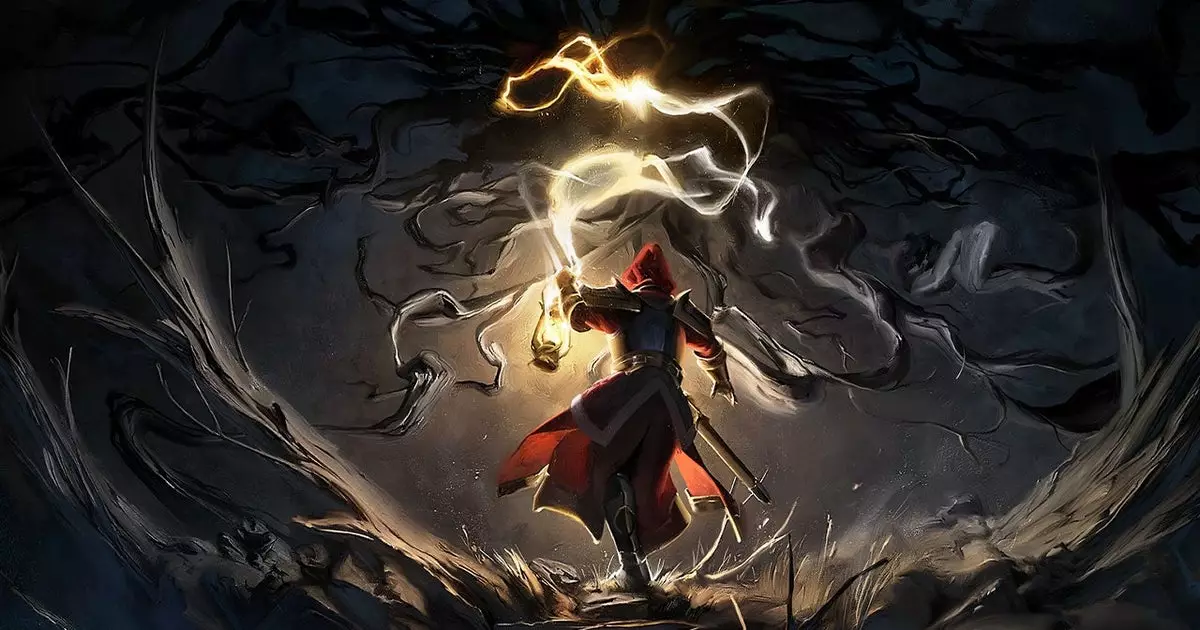In today’s gaming landscape, the allure of dark fantasy titles is undeniable. With the genre rife for exploration, games like *Mandragora: Whispers Of The Witch Tree* promise to immerse players in realms draped in mystery and peril. However, the initial impressions of such titles can sometimes lead to skepticism. This was certainly the case when I first encountered *Mandragora* back in January. At that moment, I found myself unconvinced that this game would rise above the typical offerings in a market saturated with similar side-scrolling experiences.
Yet, in a twist of fate, after revisiting *Mandragora* in its full build, my outlook transformed significantly. What initially appeared to be just another dark fantasy journey revealed layers of storytelling and innovation that elevate it above the conventional. The world of *Mandragora* isn’t merely a backdrop for combat and crafting; it is a living, breathing entity that demands player attention and engagement.
A Fresh Perspective on Storytelling
At the heart of *Mandragora* lies a narrative that stands out amidst a sea of hack-and-slash endeavors. Set in a post-apocalyptic world governed by a tyrannical King Priest, the storyline’s core revolves around themes of power and redemption. The protagonist, an inquisitor of Crimson City, finds themselves embroiled in a conflict that surpasses mere survival. The dark allure of the King Priest—reminiscent of Judge Claude Frollo—paired with the moral complexity of executing an innocent witch creates a powerful narrative foundation.
Upon beginning the game, players are not just participants; they are ensnared within a web of choices that resonate throughout the experience. The voices of non-playable characters (NPCs) enhance this feeling, bringing the world to life with thoughtfully scripted dialogues. This storytelling mechanism is an essential aspect that surpasses typical RPG fare, making it a significant draw for players yearning for depth.
A Blend of Mechanics and Aesthetics
While the story captivates, the mechanics of *Mandragora* cannot be brushed aside. It deftly combines elements such as RPG classes, skill trees, and crafting into a harmonious system. Players can engage deeply with their character’s development, acquiring hundreds of items that allow for creativity in gameplay. The action RPG mechanics prioritize stamina management and evasion, encouraging a strategy-driven approach reminiscent of classic titles like *Castlevania* but imbued with a modern twist.
In terms of visual design, *Mandragora* boldly embraces a unique aesthetic. Character portraits animate dynamically, lending an eerie quality to the game that complements its dark themes. While some may see this as a flaw, I find it enhances the atmospheric quality of the narrative, creating an immersive backdrop that entices players to keep exploring.
The environments themselves—teeming with secrets and intricacies—further enrich the experience. From labyrinthine levels to hidden shortcuts, every corner of *Mandragora* invites curiosity. Players are rewarded for their exploration, mirroring the thrilling discovery often found in the best adventure games.
Combat: Engaging Yet Evolving
Dive into the combat mechanics, and one finds a pleasantly engaging system that balances frenetic action with strategic depth. While the controls initially seem somewhat stiff, the progression and unlocking of skills showcase an engrossing evolution of combat potential. Players have the option to tailor their playstyle, switching between primary weapons and spellcraft with relative ease. This adaptability is crucial in maintaining a fresh experience throughout the approximately 40-hour journey, ensuring players remain engaged even as they master the game’s more complex systems.
The game presents not just a challenge but an opportunity for mastery, akin to titles such as *Dark Souls*, where the learning curve rewards patience and dedication. The promise of intricate abilities and passive skills invites players to experiment with their combat strategies, ensuring that each encounter feels unique.
With the release of *Mandragora*, the spotlight it commands is both warranted and exciting. Not only does it encapsulate the essence of a dark fantasy journey, but it also serves as a refreshing take on storytelling and gameplay mechanics. As players prepare to embark on this haunting expedition into the depths of Crimson City, there is a sense of anticipation for how this game will redefine their experiences within the genre. It’s a journey that promises to meld narrative depth with engaging gameplay, yielding a rich adventure that encourages players to dive deep into its twisted lore and challenging combat.

